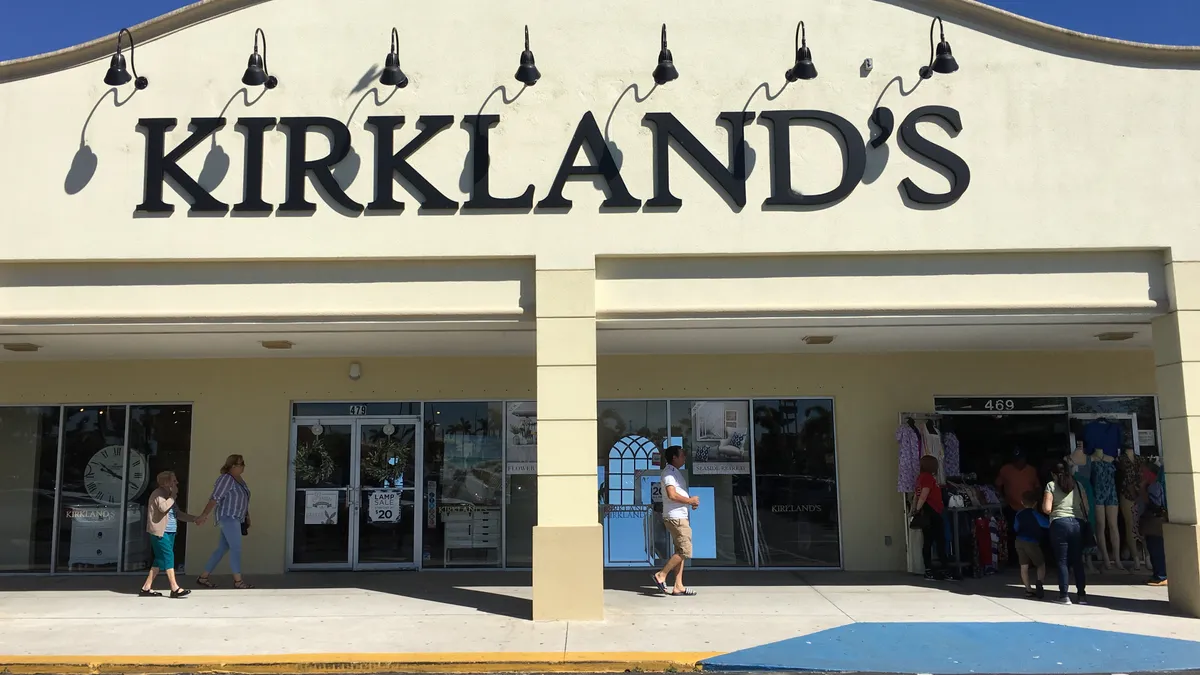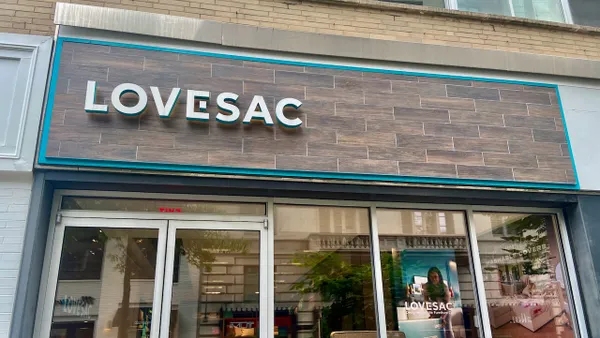Dive Brief:
- Kirkland’s will update or close 6% of its stores that aren’t meeting profitability expectations, the company said in a Tuesday announcement. That means about 19 of the 317 stores the company currently operates in 35 states could be affected.
- The housewares and home decor retailer will also use its partnership with Beyond Inc. to enhance Kirkland’s e-commerce experience. That initiative includes eliminating SKUs that aren’t meeting margin standards.
- Kirkland’s will also expand private label distribution across its omnichannel brands. The company plans to position its namesake Home brand as the exclusive private label assortment for everyday basics and décor in Bed Bath & Beyond stores. It’s also exploring opportunities to expand e-commerce distribution in furniture, patio and rugs.
Dive Insight:
Kirkland’s said Tuesday it’s making major changes to its stores, e-commerce operations and brand distribution in pursuit of profitability. The retailer struck a deal with Beyond Inc. in the fall that included a $25 million infusion of cash. That investment was part of a larger deal finalized earlier this month.
In partnership with Beyond, “we believe an omnichannel retail strategy focused on customer experience is foundational in building brand health, maximizing lifetime customer value and delivering sustainable profitable growth,” Kirkland’s CEO Amy Sullivan said in a statement.
Kirkland’s Home and Beyond Inc. first announced the strategic partnership in October. The deal includes the pilot opening of up to five small-format Bed Bath & Beyond stores. Bed Bath & Beyond shop-in-shops may also open at select Kirkland’s locations. As part of the deal, Beyond now owns about 40% of Kirkland’s outstanding shares of stock.
As part of the work to improve or eliminate underperforming stores, Kirkland’s will convert some locations to a more profitable brand and increase the assortment strategy to boost profitability through the lease term. The company also said it will close select locations “to ensure our real estate investments align to our new standards.”
Also under the plan, lower average unit retail inventory will shift to physical stores to enhance buy online, pick up in store capabilities. Kirkland’s said it has vendor commitments to expand product development and sourcing, enabling the retailer to deliver Kirkland’s Home products curated for each of its omnichannel brands.
Kirkland’s also reported preliminary financial results Tuesday. For the fourth quarter ended Feb. 1, anticipated net sales are about $148 million. The company had a consolidated comparable sales decline of about 0.6%, inclusive of comparable store growth of 1.6%. E-commerce declined 7.9% year over year. Anticipated net income for Q4 is about $7.9 million, down 22%. The partnership with Beyond enabled Kirkland’s to retire debt and improve its balance sheet, Sullivan said during a December earnings call, according to a Seeking Alpha transcript.
Bed Bath & Beyond briefly disappeared from the retail landscape after the company’s former corporate entity filed for bankruptcy nearly two years ago. Beyond’s brand portfolio currently also includes Overstock and Zulily.














